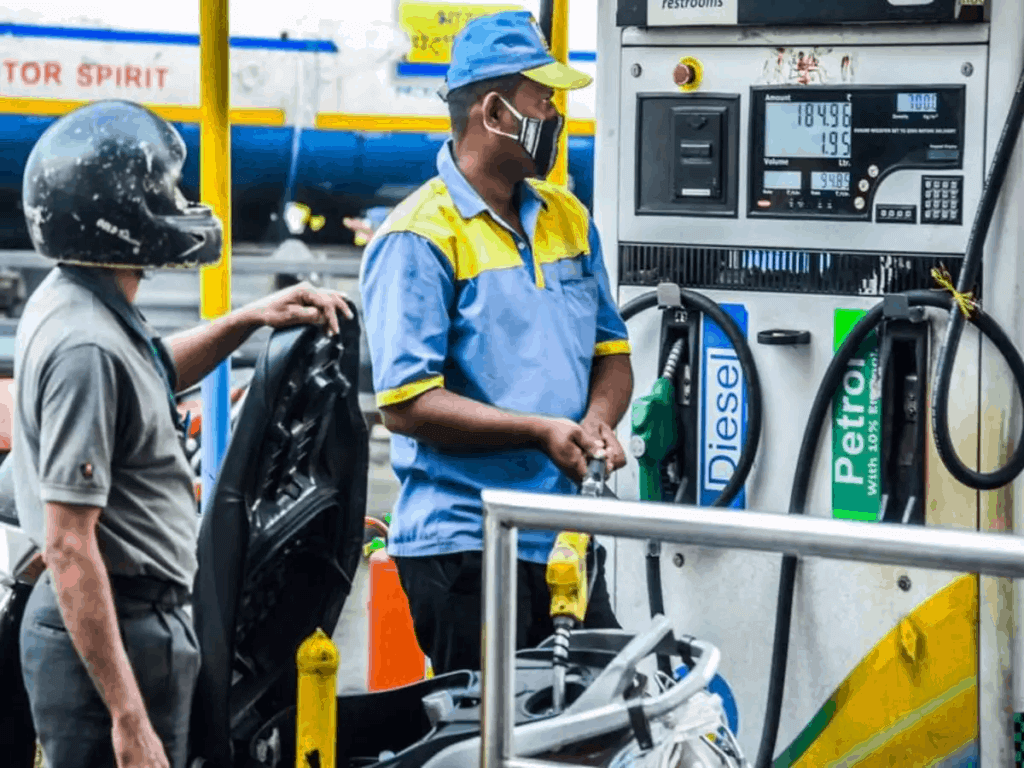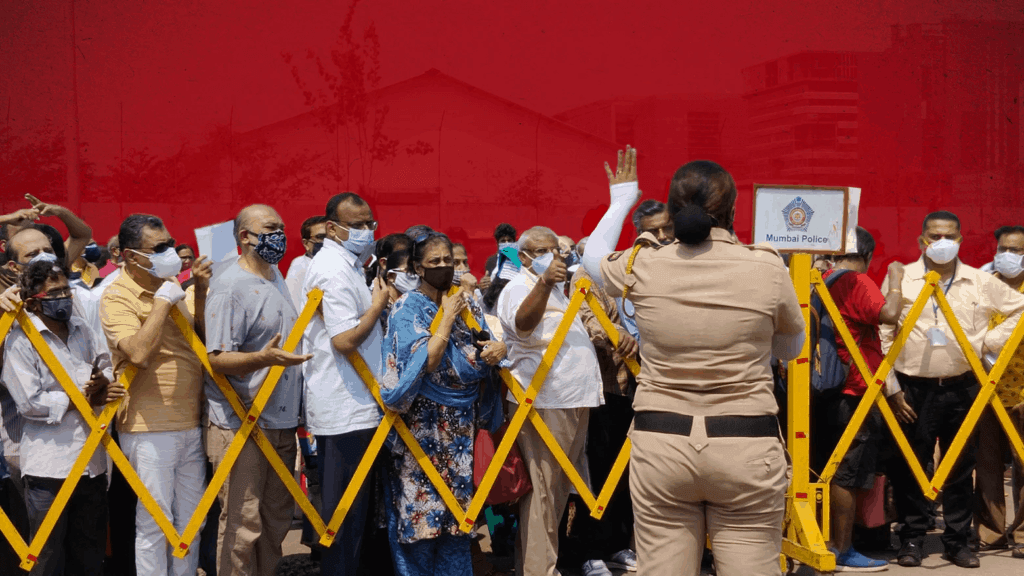Tetrapods relocated to Band Stand
Coastal road construction at Haji Ali has led to the relocation of the iconic seafront tetrapods to Bandra’s Band Stand. But locals are not happy. Officials have claimed that the tetrapods would prevent erosion at Band Stand. However, architect Samarth Das says that the natural bedrock of Band Stand is already a barrier against erosion. Residents in the area say that BMC has dangerously dumped the rocks instead of laying them out in any planned way.
Source: Times of India, Free Press Journal
Read more: The case against Mumbai’s Coastal Road project
BMC stops walk-in vaccination
From May 7th onwards, BMC will not be providing walk-in vaccinations except to people above 45 receiving their second dose of Covaxin. There have been severe shortages of supply with the NESCO jumbo centre which has the capacity to vaccinate 6,000 people a day ran out of stock by 2 PM on May 6th. So far only 5.8 lakh Mumbaikars have received both doses of the COVID-19 vaccine. On Wednesday, long queues and near stampedes were seen outside vaccination centres. Forced to wait for hours under the blazing sun, many senior citizens in the crowd were concerned they could catch the virus while awaiting the vaccine.
Source: Indian Express, Newslaundry
Private ambulances hike up rates
An investigation carried out by Mid-Day has revealed that private ambulances are charging up to three times more during the ongoing crisis. Some private operators have tied up with funeral service providers and are now charging higher amounts for combined packages. Some of the people interviewed by Mid-Day justified the rates with the increased risk and exposure they face when dealing with COVID-19 patients. An ambulance service operated by an MNS union leader is currently charging Rs. 3,500 for 2 km distances.
Source: Mid-Day
Resident doctors demand denied stipends
Doctors at 4 BMC hospitals are protesting hospital administration who they say have yet to pay them their hiked stipend arrears. In September, the government increased the stipend of resident doctors by Rs. 10,000. Now as doctors await to receive these arrears, the government is stating that the stipend will be adjusted according to the COVID-19 incentives they were already given. Doctors say they are being short-changed at a time when their services are critical.
Source: Times of India
Read more: Mumbaikars speak up about the city’s healthcare budget
Fuel prices continue to rise

According to the Indian Oil Corporation, petrol price in the city now stands at Rs. 97.34 while diesel costs Rs. 88.49. Internationally, oil prices rose on May 6th as exports surged after early losses due to the pandemic. Recently, oil marketing companies in India had frozen daily rate revisions. Incidentally, this coincided with election campaigns across 5 key states in the country. As soon as elections concluded, retail prices rose which companies explained matched the global rates.
Source: Indian Express
Taloja undertrial dies of COVID, incarcerated people face increasing dangers
A 26 year old undertrial incarcerated at Taloja jail since 2018 passed away after contracting COVID-19 in the prison. He was tested positive on Sunday, May 2nd and shifted to St. George’s Hospital where he succumbed on Wednesday, May 5th. According to recent official data, 250 prisoners and 170 prison officials have tested positive for the virus. Taloja Central prison is overcrowded with a 166% occupancy (over 3,500 prisoners) yet has only 3 ayurvedic doctors none of whom are considered qualified under the Maharashtra Prison Rules. 40 women contracted the virus in Byculla Jail which is the only women’s jail in all of Maharashtra. Of these 40 women is Jyoti Jagtap, an anti-caste activist arrested in the Elgar Parishad case.
Source: Times of India, The Wire
Air ambulance forced to emergency land after functional failure
A plane carrying a critical patient from Nagpur to Hyderabad was forced to land at the Mumbai airport on Thursday after it lost a wheel during take-off. Officials at the airport sprayed foam to prevent a fire due to the belly-landing. There have been no reports of any injuries or casualties. Runway 27 was unavailable till Friday, May 7th, morning.
Source: Hindustan Times, NDTV
Also Read:
[Complied by Nihira]
